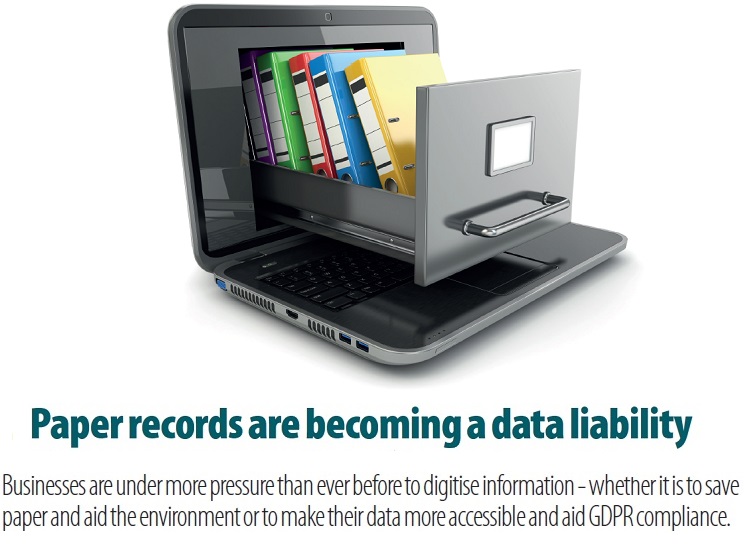Businesses are under more pressure than ever before to digitise information and the question of what to do with the UK’s mountain of boxes should be at the top of the agenda.

Now experts say the question of what to do with the UK’s mountain of boxes should be at the top of the agenda.
In a year in which the EU General Data Protection Regulation (GDPR) came into force, bringing new rights for European citizens over their personal data, the spotlight is firmly on information management. But what is often forgotten is that not all information is digital data.
Information management expert Crown Records Management estimates there are up to 200 million boxes of physical records stored in the UK alone.
Matt Read, Digital Services Manager at Crown Records Management said, “That’s an awful lot of boxes, an awful lot of paper and an awful lot of physical data to consider. What many businesses don’t realise is that GDPR doesn’t only apply to digital data, it also applies to any personal data stored on paper. That could be a wake-up call to some – because it means that in future, businesses will need to know what personal data they have hidden away in the warehouse and consider how it could be found, edited or deleted on demand.”
The obvious answer for many businesses is to scan paper records and produce a digital version.
Matt continued, “Modern scanning is pretty advanced and provides much more than just a scan of physical data. Intelligent software, like OCR, can copy text or handwritten data and make it searchable and editable. Scanning can be used for invoicing, image processing, collaboration and tagging and it’s very reliable. At Crown we have a 99.8% success rate.”
 However, Matt warns that there are still times when scanning may not be the right option. “If you don’t need to access the data, or if it doesn’t even need to be kept – for instance because it is out of date – then secure destruction may be the better option,” he said.
However, Matt warns that there are still times when scanning may not be the right option. “If you don’t need to access the data, or if it doesn’t even need to be kept – for instance because it is out of date – then secure destruction may be the better option,” he said.
“Destroying boxes can also save money in the long term and takes compliance out of the equation. However, it is worth mentioning that some physical records – for instance health data or legal documents - have to be kept for long periods by law and cannot be destroyed. It’s tempting to hide paper records away in an off-site warehouse and forget about them. But in the modern data environment that isn’t good enough.”
Photo: Matt Read
Click here to read the next editor's pick.